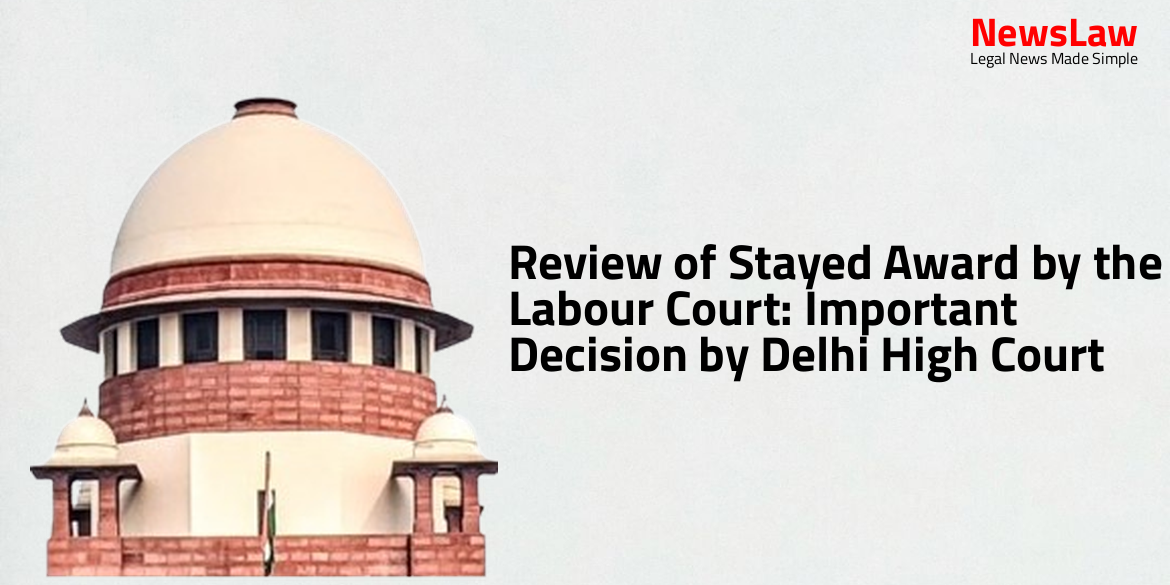In a significant legal development, the Supreme Court of India has issued a judgement regarding the KOFL Case, concerning the revival of the winding up proceedings. This case involves complex issues surrounding fraudulent preference, compliance with company laws, and creditor satisfaction. The Supreme Court’s decision sheds light on the intricate legal aspects of the case, impacting the future course of action for all stakeholders involved.
Facts
- KOFL and the Petitioner executed an agreement to sell dated 17.02.2000 for Rs.1.05 crores
- Income tax authorities issued a ‘No Objection Certificate’ for the sale
- Remaining depositors’ claims of about Rs. 5.87 crores were settled privately by KOFL
- Mr. Pradeep D. Kothari sought permission to pay unsecured creditors using personal funds
- Order for publication of company petitions in English, Tamil daily, and the Government Gazette
- Petitioner filed for discharge of Official Liquidator as no claims were left against the company
- State Bank of India sought an injunction to withhold Rs. 1.27 crores from KOFL
- Company Judge discharged the liquidator as unsecured creditors were settled
- KOFL defaulted on dues, leading to the company petitions filed for winding up
- Agreement to sell property deemed as fraudulent preference by the Company Judge
- Division Bench of the High Court revived the winding up proceedings
- Decision based on it being unjust and inequitable
- Revival due to no other creditor or contributory willing to prosecute the winding up petition
Also Read: Tower Infotech Ltd. Bail Order Appeal
Issue
- Two issues arise for consideration before the Court
- The first issue is whether the winding up proceedings against KOFL should be revived
Also Read: Priority of Employees’ Dues in Asset Sale: SARFAESI Act vs. Land Revenue Code
Arguments
- Learned Senior Counsel for the Petitioner argued for the dismissal of the winding up petition, stating that all creditors of KOFL have been satisfied as per Company Judge’s orders.
- No other proceedings are pending against KOFL before any other forum.
- Since no creditor challenged the order dismissing winding up proceedings, revival of the proceedings is not warranted at this stage.
- The execution of a sale deed based on the agreement to sell dated 17.02.2000 with KOFL was defended by the Senior Counsel.
- The agreement to sell does not constitute a fraudulent preference as per Section 531 of the 1956 Act, as it was not executed within six months preceding the winding up petition filing.
- Lack of fraudulent intention in the transaction was emphasized, supported by the No Objection Certificate from Income Tax authorities indicating the sale was not undervalued.
- Section 293(1) of the 1956 Act does not apply as the property in question does not form the whole or substantial whole of KOFL’s property.
- The winding up proceedings were correctly revived as there are several secured creditors of KOFL that have not been satisfied.
- The subject property, being the only property of KOFL, cannot be transferred without the approval of the general meeting as per Section 293(1) of the 1956 Act.
- The agreement to sell was deemed a fraudulent preference in favor of the Petitioner.
Also Read: Landmark Judgement on Consumer Rights in Healthcare Sector
Analysis
- The Division Bench observed that the Company Court has the discretion to direct the provisional liquidator to publish the advertisement if the petitioning creditor fails to do so.
- Rule 101 allows for the substitution of the petitioning creditor, but if no other creditor steps forward to prosecute the petition, it may lead to dismissal.
- Dismissal of a winding up petition solely due to lack of a prosecuting creditor under Rule 101 may not be appropriate if other unsatisfied creditors still exist.
- Failure to advertise the winding up petition can impact the rights of secured creditors who have not been satisfied.
- The Division Bench found that the agreement to sell executed by KOFL in favor of the Petitioner was not a fraudulent preference under Section 531, leading to the dismissal of the petition.
- The agreement to sell did not qualify as a fraudulent preference as it was executed well before the six-month period specified in Section 531.
- Rules 24, 96, and 99 make it mandatory to advertise a winding up petition, ensuring all stakeholders have adequate notice.
- The advertisement of winding up petitions is crucial for securing the interests of all creditors and relevant parties.
- Rule 101 provides the Court with discretion to continue winding up proceedings even if the petitioning creditor fails to advertise.
- The Division Bench erred in dismissing the petition solely based on the lack of advertisement by the petitioning creditor.
- The requirements of Section 531 for fraudulent preference need to be met for a transaction to be deemed as such.
- Section 531 of the Companies Act, 1956 deals with fraudulent preference in the event of winding up of a company.
- Section 293(1) states that the consent of the general meeting is required for the sale or disposition of a significant portion of a company’s property.
- The rules regarding the advertisement of a winding up petition are outlined in Rules 99, 24, and 101 of the 1959 Rules.
- These rules provide the procedure for initiating a winding up action and substitution of a creditor or contributory as petitioner under certain circumstances.
- The dominant motive of the company should be to prefer a particular creditor when undertaking an act, as stated in case law.
- The act must be done within six months before filing the winding up petition of the company.
- Sale of immovable property requires a sale deed and not just an agreement to sell.
- Approval of the general meeting of the company is necessary for executing a sale deed based on a prior agreement to sell.
- Violation of advertisement requirements under Rules 96, 99, and 24, which are mandatory in nature, has been noted.
- Failure to advertise makes the option of substitution provided in Rule 101 relevant.
- No other creditor or contributory expressed willingness to prosecute the original winding up petition according to the findings of both Courts below.
- Unsatisfied secured creditors of the company were not given the option to step into the shoes of the petitioning creditor.
- Mandatory procedure for advertising a winding petition under Rules 95, 96, 99, and 24 had not been complied with in the case.
- The agreement to sell dated 17.02.2000 cannot be considered a fraudulent preference under Section 531.
- The Petitioner can benefit from Section 531 despite not fulfilling the six-month condition.
- The finding on fraudulent preference does not impact the conclusion that C.A. No. 1208 of 2002 must be dismissed due to non-compliance with Section 293(1).
Decision
- SLP (Civil) No 33825 of 2009 dismissed
- Dismissal of C.A. No 1208 of 2002 seeking execution of sale deed upheld
- Decision of Division Bench in O.S.A. No 396 of 2013 upheld
- Winding up proceedings in C.P. No 179 of 2001 revived
- SLP (Civil) No. 5143 of 2018 dismissed
Case Title: IDBI BANK LIMITED THROUGH DGM (LEGAL) Vs. THE OFFICIAL LIQUIDATOR, OFFICE OF THE OFFICIAL LIQUIDATOR OF COMPANIES AND ANR
Case Number: SLP(C) No.-033825-033825 / 2009



